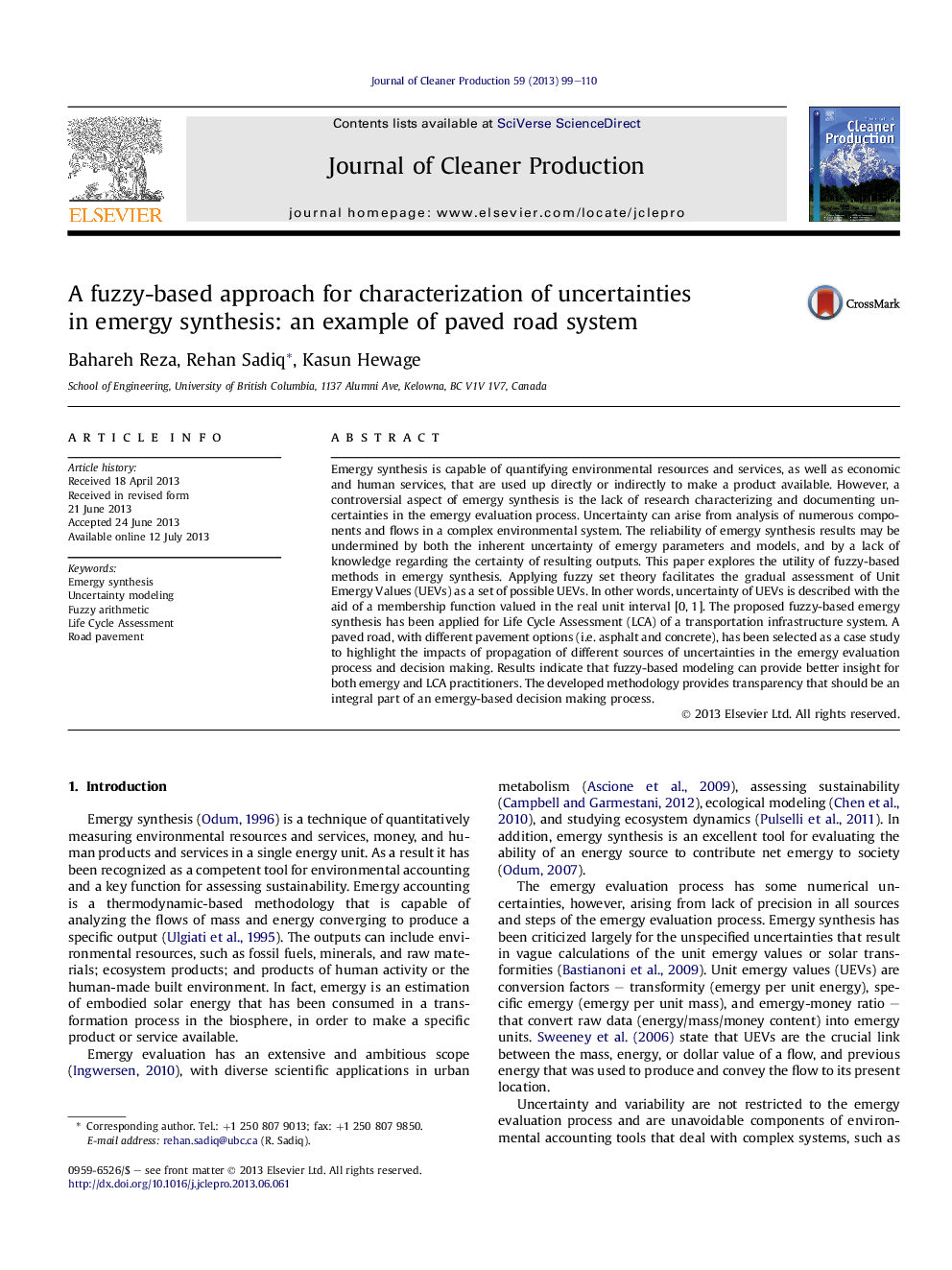| Article ID | Journal | Published Year | Pages | File Type |
|---|---|---|---|---|
| 8107228 | Journal of Cleaner Production | 2013 | 12 Pages |
Abstract
Emergy synthesis is capable of quantifying environmental resources and services, as well as economic and human services, that are used up directly or indirectly to make a product available. However, a controversial aspect of emergy synthesis is the lack of research characterizing and documenting uncertainties in the emergy evaluation process. Uncertainty can arise from analysis of numerous components and flows in a complex environmental system. The reliability of emergy synthesis results may be undermined by both the inherent uncertainty of emergy parameters and models, and by a lack of knowledge regarding the certainty of resulting outputs. This paper explores the utility of fuzzy-based methods in emergy synthesis. Applying fuzzy set theory facilitates the gradual assessment of Unit Emergy Values (UEVs) as a set of possible UEVs. In other words, uncertainty of UEVs is described with the aid of a membership function valued in the real unit interval [0, 1]. The proposed fuzzy-based emergy synthesis has been applied for Life Cycle Assessment (LCA) of a transportation infrastructure system. A paved road, with different pavement options (i.e. asphalt and concrete), has been selected as a case study to highlight the impacts of propagation of different sources of uncertainties in the emergy evaluation process and decision making. Results indicate that fuzzy-based modeling can provide better insight for both emergy and LCA practitioners. The developed methodology provides transparency that should be an integral part of an emergy-based decision making process.
Related Topics
Physical Sciences and Engineering
Energy
Renewable Energy, Sustainability and the Environment
Authors
Bahareh Reza, Rehan Sadiq, Kasun Hewage,
